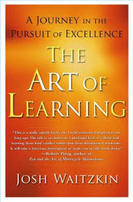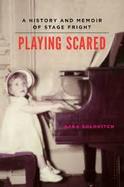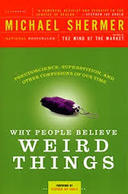 Introduction The ninth selection of Half Half Man’s book club was Josh Waitzkin’s The Art of Learning: An Inner Journey to Optimal Performance. I originally read the book last year and thought it was one of the best books I'd read in 2014. At the time, I aimed to try out many of his ideas, like journaling and paying attention to what sparks creativity in me and finding ways to trigger that myself. In addition, I wanted to develop a similar focus on quality as he discusses it. Since then, I’ve spent time journaling (mostly via the Five Minute Journal) and developing my creativity and focus on quality in my magic. My daily Card College practice routine as well as the fifteen minute set I put together and performed for numerous groups have been my own way of putting his ideas into practice, and I’ve felt so appreciative of and excited about my progress. There are so many areas of his book that have direct theoretical and practical applications for magicians striving for mastery. Below is a collection of takeaways from the book and how they apply to our art. Goals
Learning methods
Psychology
Mental attitudes
Physical attitudes
Quality
Conclusion The ninth selection of Half Half Man’s book club contained some very meaningful messages that I have been trying to apply directly to my magic. The way Josh goes from field to field and becomes a world-class expert and aims to actually push each art forward resonated a lot with me. Josh has been able to go extremely deep into a couple fields, whereas before my latest deeper dive into magic, I found myself having gone only somewhat deep (like to the level of basic competency) in a whole bunch of fields. Luckily, I’ve had the chance to focus in more deeply over the past year, striving more for mastery and quality (depth) than breadth. There is still so much for me to learn and improve on, and Josh’s example and ideas provide a really nice theoretical and practical framework for doing exactly that.
0 Comments
 I just finished reading Playing Scared: A History and Memoir of Stage Fright by Sara Solovitch, which was a recommendation of Jon Racherbaumer in a recent Genii column of his. While the book was about Sara's struggle with stage fright and performance anxiety in the world of piano, so many of its lessons apply directly to all other performance fields (including magic!) and public speaking in general. While over the years I have gained confidence with public speaking, I still struggle with fright before artistic performances. This is something I want to work on, which is why I picked up this book. I found it enjoyable to read and liked the way Sara described her journey and all the things she did and all the gurus she sought out and learned from. I got a lot of concrete techniques to try and concepts to keep in mind, and this book makes me feel like I'm certainly not alone in trying to improve in this regard. 1 agony of my ecstasy Personal story of fright playing piano in competitions 2 blinded by the light Beta blockers Power of anxiety Famous cases of stage fright Moses Actors 3 touching a tarantula Worked with private coach and practiced hours per day Group piano class U can't be fearless, only panic-less Fear is excitement without breath Breathe Design your own exposure therapy Confront an audience Scheduled solo recital a year in advance to give herself year to prepare Round of inoculations Performed in hospitals and retirement homes 9 day piano camp Signed up for master classes where could perform in front of others and be critiqued Routinely drop by major airport to perform at piano Organized series of informal evening soirees of music and wine for small groups of friends and some famous local pianists Solo recital at public library Then bigger solo recital at a public hall 4 are you my guru? Grueling teacher of Russian school Each lesson focused on minute detail Kept Practice log When you practice you are like a scientist When you perform it is only for yourself Exercises to keep rolling wrists to remove tension and keep relaxation so can be like cat and at the ready to pounce Searching in systematic way for right teacher, auditioning several in driving distance Going deeply into each piece, learning all its secrets So much work into the details Every phrase up for analysis Playing on San Jose airport piano Tag team playing with teacher and children Playing on bad pianos in bad places just to practice 5 massaging the octopus Reprogramming one’s response to stress Skype weekly meetings Practicing is like eating: you have to do it every day instead of one big meal Written practice logs 5 hour daily practice logs Record and critique your play daily and really listen Find center and sense of calm Personal affirmation written Do something daily outside comfort zone Piano camp for 8 days Focus on the good things Loosen mouth Play from the heart Breathe Fear is a natural reaction to moving towards the truth Master sushi chef massages octopus for 40 minutes 6 revenge of the amygdala Does fear create running or vice versa Action precedes consciousness We are sad because we cry Takes 12ms for amygdala to respond Link between fear and memory Fear learning is laid down elsewhere than higher level abstract learning Stored somewhere more instinctive The stronger the emotional response the stronger we remember Beta blockers and exposure training counteracts Graduated exposure Memories altered as viewed each time Diffuses memories through exposure Propanalol / indural stops the physical response Propanolol blocks the memory forming effect of Traumatic/emotional experiences Banned as doping in sports 7 mind games Mindfulness Biofeedback biowave Meditation practice Iyengar Hatha yoga Stop exercises while playing and considering what emotion ur feeling at all times Meditation at piano Can change our own brains through mental activity Describe personal dramatic event in third person to allow yourself to process it better and feel compassion for self Like meditation, speaking in the third person allows you to observe yourself in a healthy way 8 me and my shadow Psychiatrist Not feeling worthy of success Archetype of outcast Deintegrative and reintegrative experiences Practice each hand separately No such thing as natural prodigy Make the piano yours not your mother’s 9 so much for perfection Practicing 8 to 10 hours per day Perfectionism leads to problems Create your own audience internally that is loving Design for tolerance for error 10 umm umm Stage fright survival school in Virginia Slow belly breathing Toastmasters Greet audience before speech Arrive early and get comfortable in room 11 cultural artifacts of fear Ultra orthodox community prayer fears Cultures express themselves in disorders 12 game plans Baseball player psyched out and made errors Overthinking Paralysis by analysis Clench left hand activates right hemisphere (and lowers left hemisphere overthinking) and improves performance Conjure image of perfect shot 13 test drive Sports psychologist Need to switch to right brain The more ambidextrous the higher iq Center before event Focused yet relaxed Life is not a discovery but a creation You can do anything you set your mind to Pre performance ritual 14 finale Communicate your love for your music. play what you love.  Introduction The eighth selection of Half Half Man’s Book Club was Michael Shermer’s Why People Believe Weird Things: Pseudoscience, Superstition, and Other Confusions of Our Time. It was a combination of psychology, history, and science that delved deep into several “weird things” that people believe and came up with some general ideas behind why they do so. The author defines a weird thing as “(1) a claim unaccepted by most people in that particular field of study, (2) a claim that is either logically impossible or highly unlikely, and/or (3) a claim for which the evidence is largely anecdotal and uncorroborated.” The examples of “weird things” that the book explores are creationism, Holocaust denial, alien abduction, near-death experiences, witch crazes, and cults, with some mentions of magic throughout. It explores the reasons for the popularity of these phenomena, even among very educated people. The reasons it comes up with are general lessons that magicians can leverage to make their entertainment experiences stronger through a deeper and more subtle understanding of the way smart people form and keep beliefs. However, this deeper understanding comes with greater responsibility and requires caution: magicians need to be very careful to not take advantage of these psychological biases to spread false beliefs and to make crystal clear that what they’re creating is an experience meant for joy and appreciation of reality, not a scientific proof of a fake or pseudo-scientific phenomenon. Magicians can leverage the many reasons people believe weird things to create more powerful experiences. There are several concrete reasons the author cites for why people believe weird things that magicians can leverage to make their magic stronger. First, it is the causal thinking that defines human rationality that allows magic in the first place. The author explains, “We have magical thinking and superstitions because we need critical thinking and pattern-finding. The two cannot be separated. Magical thinking is a necessary by-product of the evolved mechanism of causal thinking.” This reminds me of the idea that "magic is in the mind of the spectator -- not in your fingers" (1). Magicians can leverage causal thinking to set up logical chains of thought that are rationally sound but may start with some false assumptions. The more fair the logical progression and justification of actions, the stronger the illusion. The author repeats several times in the book that ”smart people believe weird things because they are skilled at defending beliefs they arrived at for non-smart reasons…. Most of us most of the time come to our beliefs for a variety of reasons having little to do with empirical evidence and logical reasoning.” Some examples of these non-smart reasons that magicians can leverage are optical illusions, psychological biases/ploys (confirmation bias, etc.), and inattentional blindness. Helder Guimarães’s article in the last Quarterly explored these types of “non-smart”/psychologically built-in reasons in depth (2). Another idea that magicians can take advantage of is patterns. The author shows how ”humans are pattern-seeking, storytelling animals, in search of deep meaning behind the seemingly random events of day-to-day…. How easy it is to work over an undigested mass of data and emerge with a pattern, which at first glance, is so intricately put together that it is difficult to believe it is nothing more than the product of a man’s brain.” People are so apt to believe in surprise patterns that emerge out of chaos, even though these patterns may have been pre-planted or can be derived from any data set based on rules and secrets. Magicians can also take advantage of people’s natural pattern-finding inclination by conditioning them to accept false evidence based on earlier multiple similar fair displays. Another powerful area of “non-smart”/lower-level thinking that magicians take learn to leverage is memory. The author explains, "Memory is a complex phenomenon involving distortions, deletions, additions, and sometimes complete fabrication. Psychologists call this confabulation—mixing fantasy with reality to such an extent that it is impossible to sort them out. Psychologist Elizabeth Loftus (Loftus and Ketcham 1994) has shown how easy it is to plant a false memory in a child’s mind by merely repeating a suggestion until the child incorporates it as an actual memory." Magicians can rewrite their audience’s memories in subtle ways that strengthen the illusion and clean up the experience they’ve had. A key point the author makes is that these “mistakes” that people are susceptible to are not due to lack of intelligence. In fact the opposite is true; the smarter they are, the easier they are to fool, as long as you give them enough “smart” reasons and justifications: "Members of such cohorts, by virtue of their intelligence and education, think they will be better at discerning the secrets of the magician, but since they aren’t they are easier to fool because in watching the tricks so intensely they more easily fall for the misdirection cues…. Intelligence is unrelated (or perhaps in this case slightly inversely correlated) to the ability to discern the real magic behind the tricks…. Smart people, because they are more intelligent and better educated, are better able to give intellectual reasons justifying their beliefs that they arrived at for nonintellectual reasons…. The ease with which an intelligent man, passionately convinced of a theory, can manipulate his subject matter in such a way as to make it conform to precisely held opinions." For the same reasons, magicians need to be careful in choosing the messages they convey. People, especially smart ones, are susceptible to believing weird things due to many pressures on their lives, and taking advantage of this weakness for actual person gain is immoral. The first reason the author gives for ”why people believe weird things” is “(1) because hope springs eternal.” People have a hope that there is some bigger reason or force in the world they can believe in. Magicians shouldn’t take advantage of their hope but rather give them a way to appreciate and enjoy the reality they do live in. The author explains that ”under the pressure of reality, we become credulous…. Credo Consolans. More than any other, the reason people believe weird things is because they want to. It feels good. It is comforting. It is consoling.” Don’t take advantage of others’ feeling pressure; relieve it and show them a different, more inspiring view of their current world, not a false view. Magicians can provide comfort in reality and joy from the magical experience which is totally disconnected from a belief in something untrue. Another reason for people’s belief in weird things is ”Immediate Gratification. Many weird things offer immediate gratification…. Simplicity. Immediate gratification of one’s beliefs is made all the easier by simple explanations for an often complex and contingent world.” The simple explanation is the one the magician wants to inspire with a clear logical progression in the routine; the actual explanation behind the effect is often ugly and intricate (and may even use science or math!). This idea can actually be used to teach that hard work and indirect approaches can accomplish the impossible. Magicians should not insult their audience’s intelligence by attempting to convince them that they are really psychic; they should instead use their skills to provide joyful, entertaining experiences and show how well psychic phenomena can be faked to help debunk these ideas further. Magicians thus should not take advantage of the reasons people believe weird things to spread these false beliefs further. They should make crystal clear that what they are doing is inspiring joy, fun, and entertainment, not proving something serious or scientific. Conclusion The eighth selection of Half Half Man’s Book Club was a very relevant and applicable read. While some of the investigations into the pseudo-scientific weird ideas were a bit too in depth for my taste, the author did a great job bringing the ideas back to his main point and explained numerous principles for why smart people believe weird things in a way that’s directly applicable to different fields. His ideas can help make science and magic better, and they provide a cautionary lesson for how easily people can be fooled. These weaknesses can be used to create positive emotional experiences but should not be the method by which caring smart people are taken advantage of to believe the wrong things about what actually matters in their own lives. References 1. John Hamman. The Secrets of Brother John Hamman. 1989. 2. Helder Guimarães. “Contextual Invisibility.” Quarterly Issue #2. Spring 2015: Half Half Man. |
Archives
June 2024
Categories
All
Subscribe |
 RSS Feed
RSS Feed
